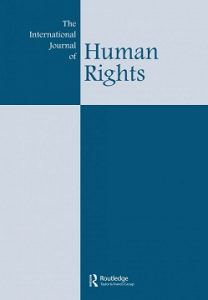
Rosa Ana Alija Fernández & Olga Martin-Ortega
Silence may play different roles during post-authoritarian and transitional periods: in Spain, it has been a key element for impunity. Silence was twice imposed on victims: first, after the end of the civil war and during dictatorship, silence was a survival strategy to Franco’s repressive machinery; later, during the democratic transition, silence was said to be the price to pay for reconciliation and democracy. While the victims on Franco’s side had reparation, Franco’s victims did not – in fact thousands of them still remain buried in unmarked mass graves. Any attempts to pursue justice through the Spanish judiciary have been unsuccessful, including resort to the European Court of Human Rights. This article analyses the ways in which silence was imposed and the instrumental role the repression and its normative regime had on it, and in turn the impact of silence on justice. In this context, the role of silence goes beyond impacting the individual trauma and shaping a national memory but also makes victims unwillingly give up their right to justice. This article contends that, when imposed (explicit or implicitly) silence results in impunity and courts should take this into consideration when determining victims’ effective capacity to claim their rights in judicial fora.
